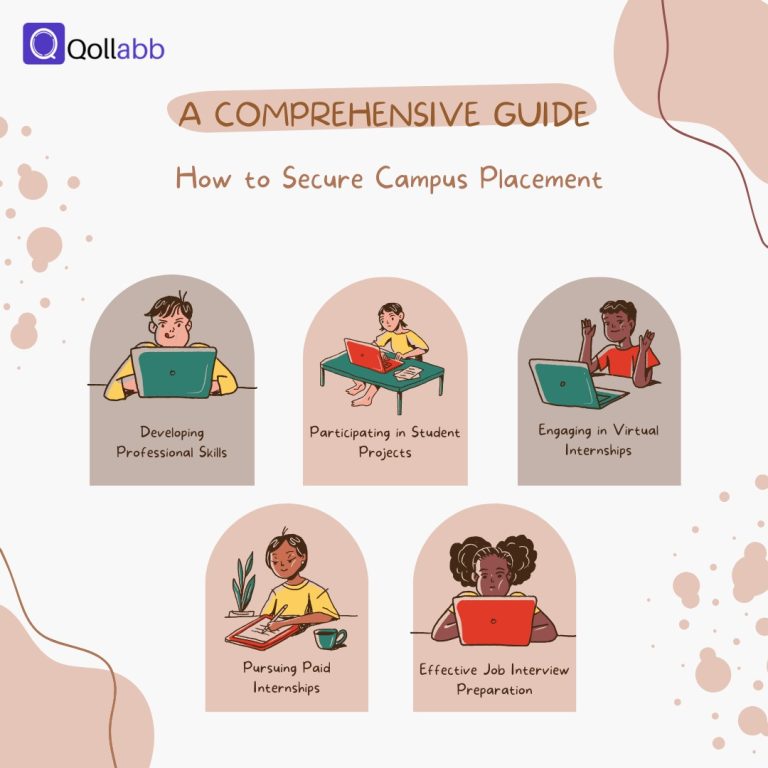Introduction
Securing a campus placement is a crucial milestone for students stepping into the professional world. Mastering campus placements requires a strategic approach and a combination of essential steps to enhance your chances of landing a great job. This guide will focus on key aspects such as developing professional skills, engaging in virtual internships, pursuing paid internships, participating in student projects, and effective job interview preparation.
Developing Professional Skills
Professional skills are fundamental to your success in the job market. Employers seek candidates who can demonstrate a blend of technical knowledge and soft skills. Effective communication is crucial, so participating in group discussions, presentations, and public speaking events can enhance both your verbal and written communication abilities. Engaging in activities that challenge your analytical thinking, such as puzzles, case studies, and real-life problem-solving scenarios, can significantly improve your problem-solving skills. Additionally, collaboration is essential in most professional environments. Working on group projects or joining clubs and organizations can help you develop your ability to work well with others.
Participating in Student Projects
Student projects are an excellent way to apply what you’ve learned in the classroom to real-world problems. They can significantly enhance your resume and improve your chances during campus placements. Working on student projects allows you to apply theoretical knowledge practically, which is highly valued by employers. These projects often involve teamwork, helping you improve your collaboration and communication skills. Additionally, successfully completed projects can be added to your portfolio, showcasing your skills and experiences to potential employers.
Engaging in Virtual Internships
Virtual internships have become increasingly popular and provide numerous benefits. They offer flexibility and allow you to gain experience from the comfort of your home. Virtual internships enable you to balance your studies and work, manage your time effectively, and avoid commuting. Many virtual internships focus on enhancing digital literacy and remote working skills, which are highly valued in today’s job market. Additionally, even though the internship is virtual, you can still build a network by using platforms like LinkedIn to connect with your mentors and colleagues.
Pursuing Paid Internships
Paid internships are an excellent way to gain experience while earning money. They provide financial benefits and add significant value to your resume. Earning while learning gives you a sense of financial independence and helps you manage your expenses better. Paid internships often come with more responsibilities, offering a closer experience to full-time employment. Additionally, many companies use internships as a trial period for potential full-time hires, so performing well in a paid internship could lead to a job offer.
Effective Job Interview Preparation
Preparation is key to success in job interviews. To prepare effectively, start by researching the company and the role you’re applying for; understand the company’s history, values, and recent developments. Practice with mock interviews to become familiar with the interview format and reduce anxiety. Prepare answers for common interview questions, being ready to discuss your strengths, weaknesses, and experiences. Additionally, use the STAR (Situation, Task, Action, Result) technique to answer behavioral questions effectively, as it helps you structure your responses clearly and concisely.
Conclusion
Securing a campus placement requires a combination of skills, experiences, and preparation. Mastering campus placements involves focusing on developing your professional skills, engaging in virtual internships, pursuing paid internships, participating in student projects, and preparing effectively for job interviews. By mastering campus placements, you can significantly enhance your chances of landing a job that sets the foundation for a successful career. Remember, consistency and persistence are key. Good luck!





